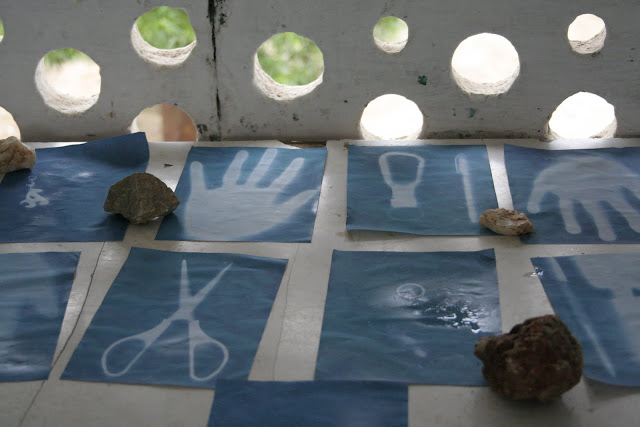"I am very very enjoying [the photography classes], I hope to learn to make good photos" - Vinod
The Monsoon has stayed around in Rajasthan for much longer than normal and we have been experiencing some very heavy rainfall accompanied by dramatic thunder storms; so it is with all our fingers crossed that we head out to the orphanage to do a sunpaper activity.
Sunpaper (or cyanotype) is paper which has been treated with chemicals which mean that once it is exposed to light it changes colour. Areas which have been covered, and therefore not had any light exposure, stay white. To fix the picture you simply have to run it under water for a few minutes. We thought this would be a good way to get the boys back to the very basics of photography and teach them about composition.
The first part of the session it was scorching hot so the boys quickly got together items to create their pictures. After a few minutes in the sun the boys made a quick dash to the sink to fix the pictures. After leaving them to dry they were ready to think about their next pictures...but then our luck ran out and the heaven opens! So without the sun we had to move to the next activity, composition practise.
 |
| Photo by Sunil |
The boys explored the grounds of the orphanage, practicing holding their cameras in landscape and portrait. In the last part of the session the boys have been reviewing their photos with the volunteers. They are keeping a journal in which they record their favourite pictures of the day and explain the reasons why they took that particular shot and what is they particularly like about it.
The volunteers are noticing a big improvement in the boy’s confidence; they are more willing to move around on their own and take pictures from different angles.
Tomorrow we will be personalising their sunpapers.
 |
| Photo by Ashu |
 |
| Photo by Kamash |
 |
| Photo by Kanti |
 |
| Photo by Rangeed |









